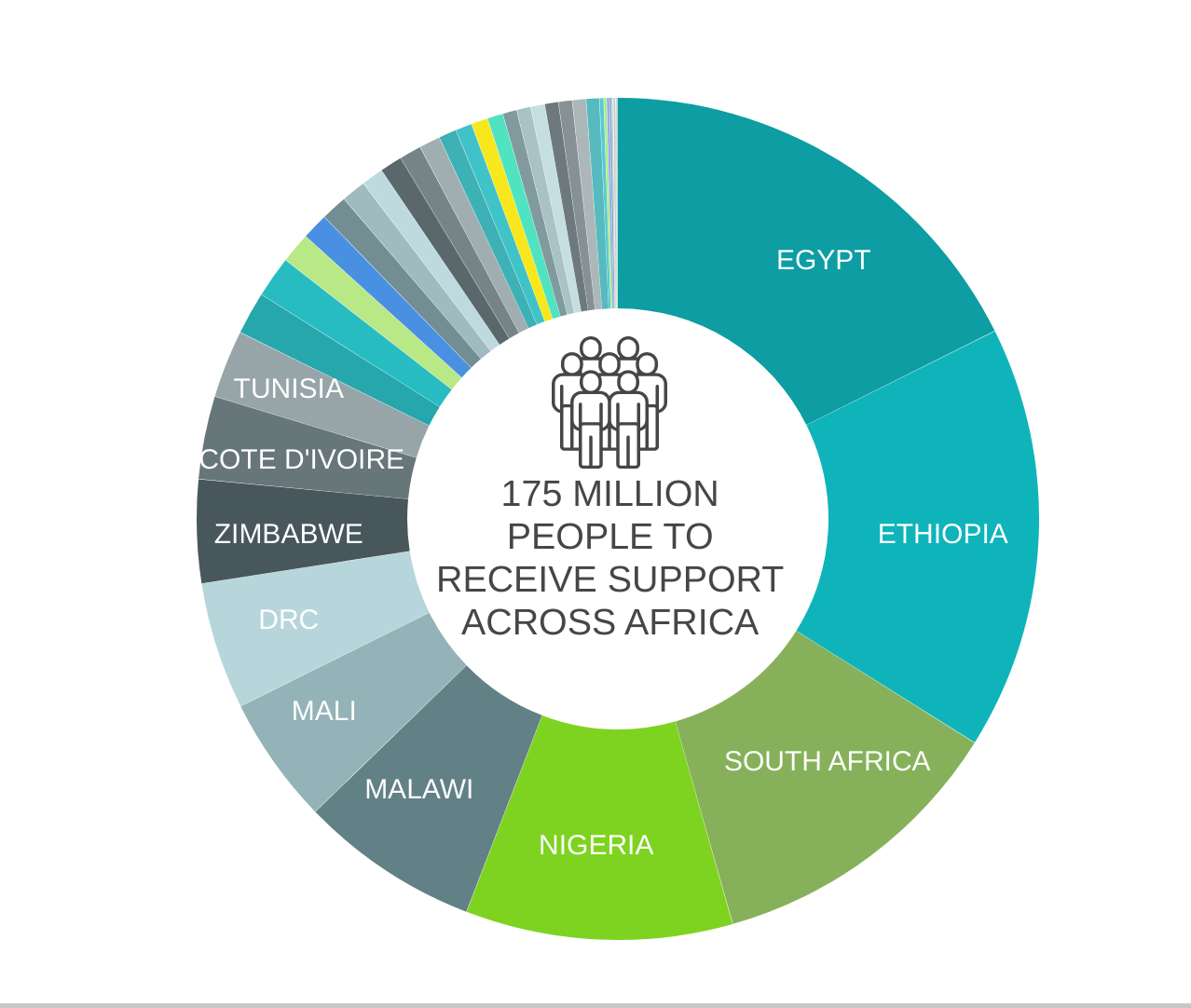Updated Weekly
What is the latest update on #COVID19 cases and responses across #African countries? As usual, our weekly infographic is here to help you digest the key headlines quickly, with additional analysis to bring out information you won’t find collated anywhere else… at least until you see it here anyway! So what’s the unique analysis and headline this week?
Well, while the #WorldBank is forecasting an increase in #poverty across Africa of around 39 million people, did you know that African governments collectively are hoping to reach over 4 times that number of people – we calculate 175 million African people – that’s around 13% of the entire population – to provide extra support over the COVID19 period and avoid those increases in poverty?
They are using cash transfers, food and water distribution and cutting utility bills to do so.
We’ve mapped out which countries are reaching the largest populations, which countries are covering the largest proportions of their populations with these measures, and which countries are spending the most to get there.
As always, our analysis reveals hope as well as challenge. What conclusion to draw?
African countries do have the tools to continue manage COVID19 without seeing escalating numbers of people in poverty. But their financial constraints are the key barrier to making that happen. But any extra finance that can be provided to African countries – whether through grants or debt payment holidays – will go a long, long way.
Check out where your country fits, and let us know your reflections, are these measures working? What more is needed to avoid poverty?

To find out how Development Reimagined can help you, your organisation or Government during the COVID-19 outbreak please email the team at clients@developmentreimagined.com .
Special thanks go to Rosie Wigmore, Rosie Flowers, Angela Benefo, and Jin Yu Chen for their work on the graphic and collecting/analysing the underlying data.
The spending data was collated from a range of sources including: the Milken Institute Africa Tracker; the IMF policy tracker; as well as government websites and media reports. Other COVID19 data was collated from our world in data and Africa CDC. Debt data was collected from the World Bank’s International Debt Statistics database.
If you spot any gaps, please send your feedback to us at drteam@developmentreimagined.com, we will aim to verify and rectify asap.
June 2020


